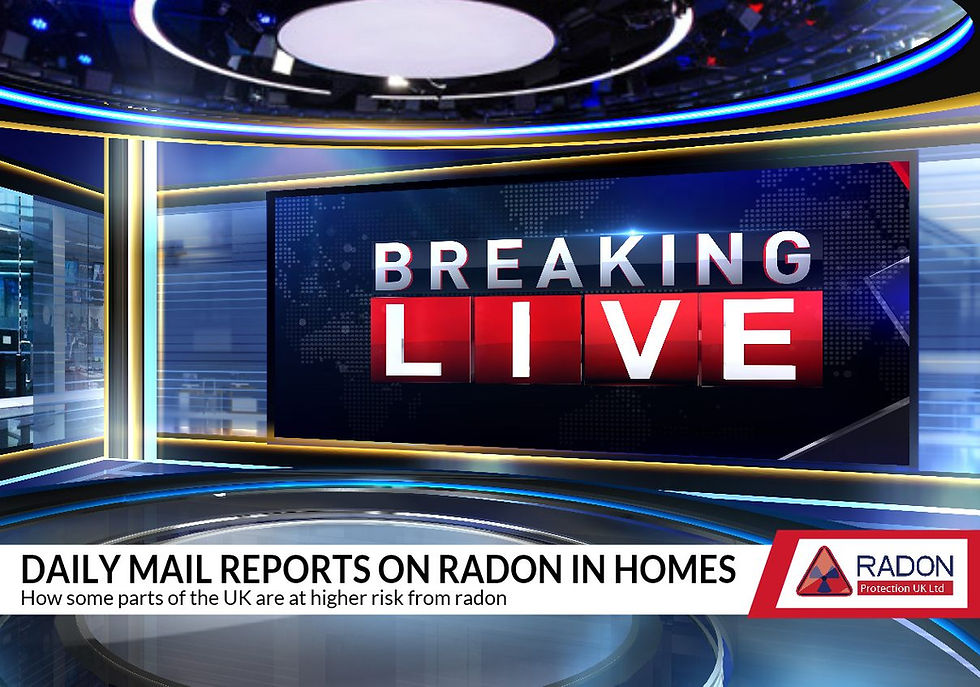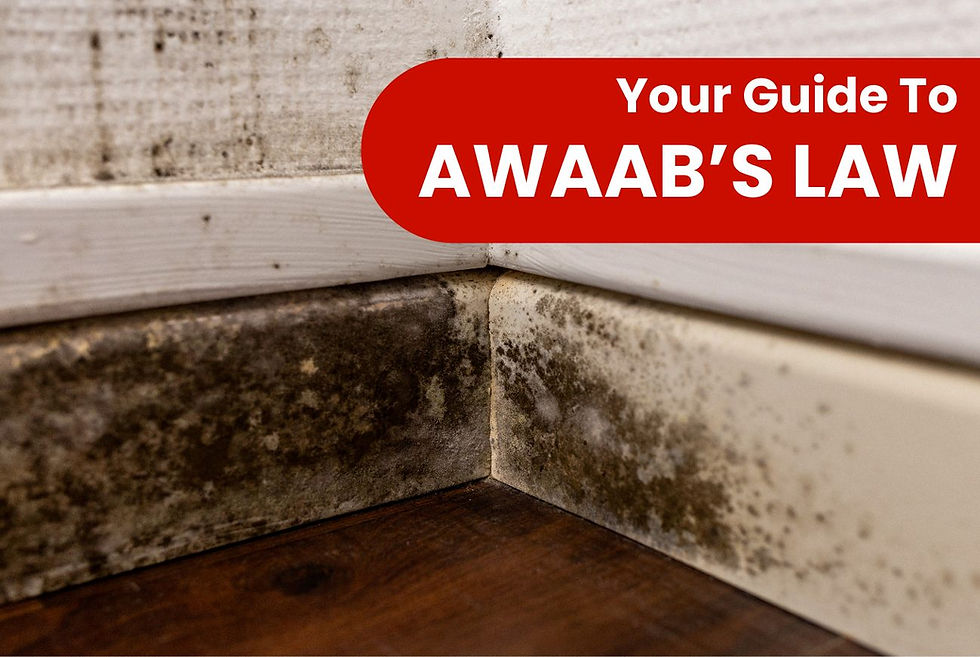Estate agents: tackling the issue of radon
- Mar 18, 2021
- 3 min read

Radon Protection UK offers Radon testing in domestic properties through to the installation of Radon mitigation systems.
We also carry out regular local property surveys in both existing properties and New Homes should the issue of radon arise during the property sale process.
Radon is a radioactive gas as a result from decaying uranium in the ground and is found in locations across the UK including Northamptonshire and Leicestershire. Radon is the second biggest cause of lung cancer in the UK and is linked to 1000 deaths per year.
This guide is intended to provide you with the information to aid you when dealing with the subject of radon gas and the potential pitfalls between a buyer and the seller. If a property falls within a radon affected area, this will be highlighted in the Environmental / land search – or can be identified using the Public Health England map for guidance.
If a property is in a radon affected area, it is possible that the current home owners may be aware of the radon risk in the area and have already carried out tests to check the property’s radon levels.
If no previous testing has been carried out, it is possible to carry out a short-term screening test, where detectors are left in place for 10 days before being returned to our laboratory for analysis. The results from this test will give you a ‘snapshot’ of the current radon level and provide a good indication as to whether any remedial works will be necessary. At this stage, we can provide a property survey and quotation for the necessary works to help speed the process along if required.
Alternatively, there is the option for the property sale to proceed as normal, the buyers move into the property and then carry out a full three-month test – this is where a radon bond would come into place.
In order that radon testing doesn’t hold up property transactions the solicitors on both sides can agree a ‘radon bond’ wherein a sum of money from the purchase price, agreed upon by both parties, is retained by the solicitor for a set period of time whilst testing is carried out. The funds will be realised back to the original seller should elevated levels be present, then an official radon bond occurs when both parties sign a contract that outlines how the bond will work.
Arranging a radon bond:
Under this system, the seller and buyer agree on a sum of money that is likely to be enough to cover the cost of a typical radon remediation system should one be required. The money is taken out of the buyer’s purchase price and held by a third party (for example, a solicitor) until the test result is known and any reduction measures have been carried out. Both parties sign a contract that stipulates how the bond will work. Sometimes the money is released before the work is carried out to fund the remediation.
In most cases, the test shows radon levels below the action level, then no further action is necessary and the bond money is released back to the seller.
The bond’s life must also be realistic, allowing – for example – at least four months from completion of house sale to obtain a radon test result. If this result is at or above the Action Level another two months should be allowed for the completion of remediation work.
There are two main remediation techniques available for lowering your radon levels: installing a radon sump or introducing positive pressure. Our team have many years of experience implementing these methods in buildings and successfully bringing radon levels down to an acceptable concentration.
Securing a bond will give the buyers a degree of confidence that even if you have elevated levels then you have retained the funds to allow for the works to be carried out.
If you require any further information or have concerns about the possibility of radon in a property you’re dealing with, we provide a comprehensive, confidential and accurate service. Radon Protection UK installs radon mitigation systems in homes.
You can get in touch with our team of radon experts by calling 0800 978 8435.





Comments